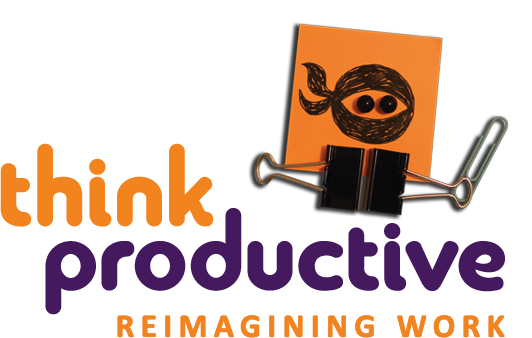Why Email Is Killing Your Productivity And How to Change It
So many organizations rely on email for their communication, and although it has always been viewed as an extremely efficient communication tool, we are now being consumed by our inboxes. With a constant stream of notifications, many of us start the stay bogged down in an overflowing mailbox, creating a huge drain on our productivity before the working day has even started.
Sheer Volume
Over 200 billion email messages are sent and received every day. Email occupies 23 percent of the average employee’s workday, and that average employee checks his or her email 36 times an hour. At TPNA, our aim is to always keep our inboxes at zero, not necessarily responding to emails as soon as they arrive in our mailbox, but instead, sorting them into manageable folders: @action, @read and @waiting.
But email can still impact productivity even when using this technique. A lot of people deal with their emails before taking on other tasks, for example, when we come back from a holiday, our first instinct is to clear our inbox of clutter, before moving onto other and perhaps more important projects.
If you’re someone who receives hundreds of emails on a daily basis (as a lot of us do), within the blink of an eye, you can have a completely new page of unread emails. This is even more of a problem today in the digital age, where most of us are using our laptop or other digital device for note taking, research, reading – just about everything!
Schedule Processing Time
For this reason, it’s a good idea to schedule specific time to check email, for example, once in the morning and once in the afternoon. It’s easy to spend an entire day responding to emails as and when they come into your inbox, so limiting the number of times you have your email open will avoid this inevitable outcome.

Turn Them Off!
Keeping your email program closed not only prevents notifications from popping up at the bottom of our screen, but it also prevents the temptation to multitask. Some say you’re more efficient if you’re multitasking and doing two things at once, but at TPNA, we believe in monotasking, i.e. the art of doing one thing to its natural conclusion and without interruption. Monotasking helps you to feel more present in your work, more engaged, calmer and more at ease with the world around you.
Be Concise
Another reason email can kill our productivity is the amount of time we spend composing them. We are all guilty of writing long, detailed emails when dealing with an important person or new client, when often, the same thing could be said in half the space. Eradicate the notion that short emails are rude, and instead, remember you are more productive when you are concise.
Avoid it Altogether
Since email can be such a big killer of time and productivity, it might be an idea to look into other forms of communication, for example, at Think Productive Australia, we use Slack as an alternative to email. Email is great for one-to-one communication, but can break down when more people enter the conversation (think how many times you have been unnecessarily CC’d). Slack is much better for collaboration in terms of sharing ideas and getting feedback from multiple people at once. Members can also ‘like’ and ‘react’ to your comments, as with social media networks like Facebook.
Productivity in the UK has fallen consistently since 2008, despite a recovering economy and email has contributed to this outcome. But used in the right way, email can increase productivity. Follow the steps mentioned in this article, and check out the email workshops we offer at Think Productive: Getting Your Inbox to Zero and Email Etiquette.
By Emma Gibbins
